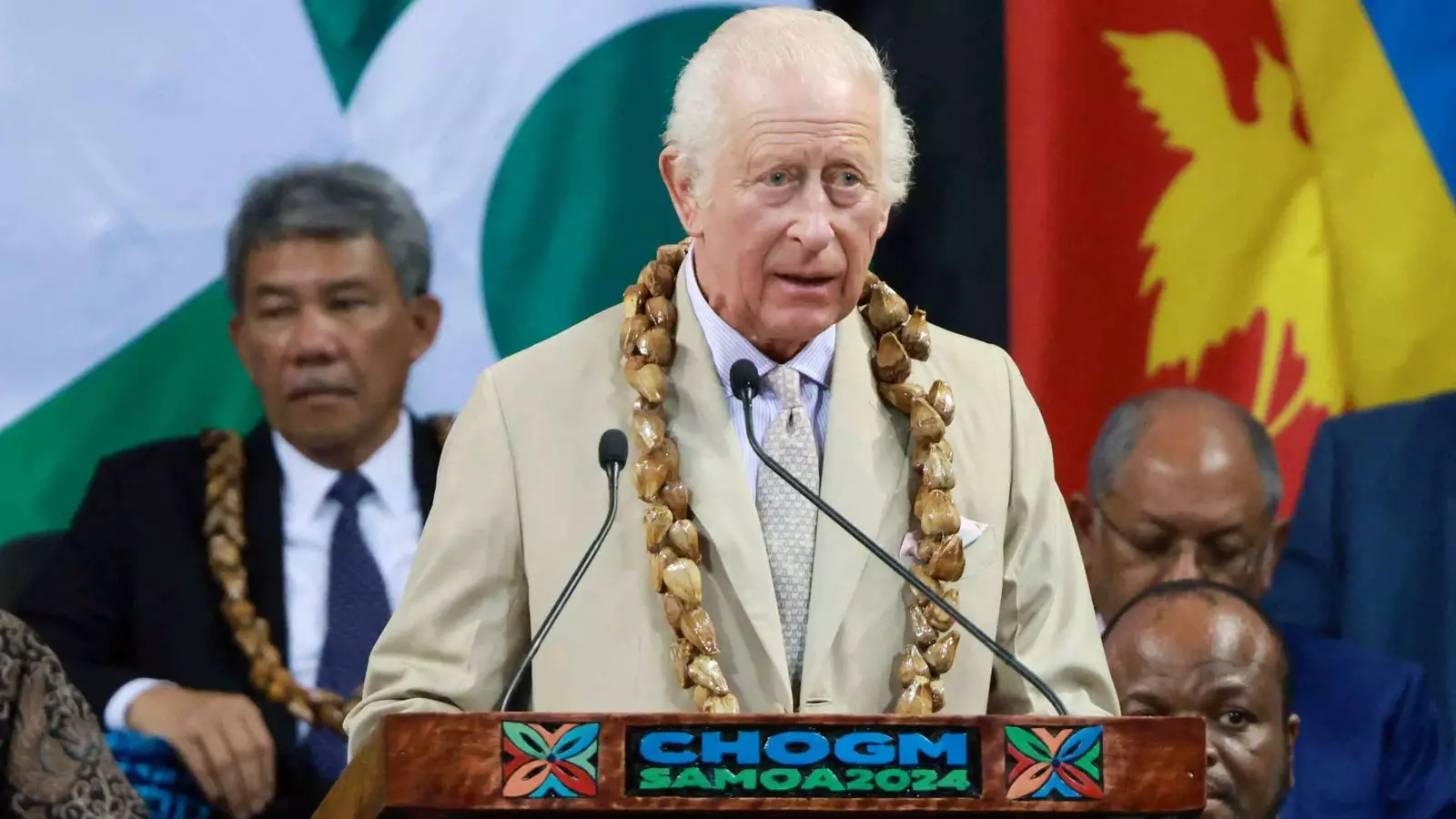The recent speech delivered by the King during his first meeting with Commonwealth leaders serves as a critical juncture not just for him but for the entire Commonwealth. Set against a backdrop of complex historical grievances, particularly involving the slave trade, the meeting in Samoa—under the theme of a “common future”—strives to address unaddressed historical wounds while navigating contemporary political sensitivities. Despite the high hopes associated with this event, it highlights the persistent fractures within the Commonwealth that threaten its unity and future relevance.
The King’s eloquent acknowledgment of the “painful aspects of our past” reflects a genuine attempt to foster dialogue. His insistence on the importance of historical understanding as a pathway towards positive change sets a constructive tone. Yet, the absence of direct commitments regarding slavery or reparations reflects a cautious approach, likely born of the need to maintain political neutrality. This cautiousness, while understandable, might not resonate deeply enough with those from Caribbean and African nations who have lived through generations of systemic inequalities. Their desire for explicit reparative actions demands more than mere acknowledgment; it calls for accountability.
Voices like that of Eric Phillips from Caricom underscore the urgency of these demands. The clarion call of “No reparations, no trade” encapsulates the frustration felt by many in historically marginalized nations. This juxtaposition of historical reckoning against contemporary diplomatic relations showcases the challenging dynamics at play. For many, the King’s speech appears more like a diplomatic overture than a genuine commitment to resolving past injustices. Instead of fostering trust, the vagueness surrounding reparations may inadvertently entrench existing divisions, making reconciliation more complex.
Caught in a difficult position, the King is characterized as a figure who embodies the complexities of royal history intertwined with the traumatic legacy of colonialism. His royal obligations often restrict direct interventions, leaving him in a challenging limbo between historical acknowledgment and governmental protocol. Recent statements reflecting regret about slavery, coupled with commissioned research, exhibit a tension between personal reflection and institutional restraint. However, the growing call from the Commonwealth nations for a formal apology indicates that such gestures may not suffice, leading many to question the relevance of the monarchy in addressing these historical grievances.
The conclusion of the King’s speech, filled with aspirations of learning from the past and forging a harmonized future, stands as a beacon of hope. However, the reality it faces—marked by deep-seated divisions over reparations and historical accountability—casts a shadow over its potential impact. While it is vital to maintain an optimistic outlook, one must critically assess whether the speech has genuinely catalyzed a collective movement towards healing or if it merely glossed over the urgent needs of those still wrestling with the implications of colonial legacy. The moment was laden with potential, yet it risks being categorized as another missed opportunity to enact meaningful change within the Commonwealth.


Leave a Reply